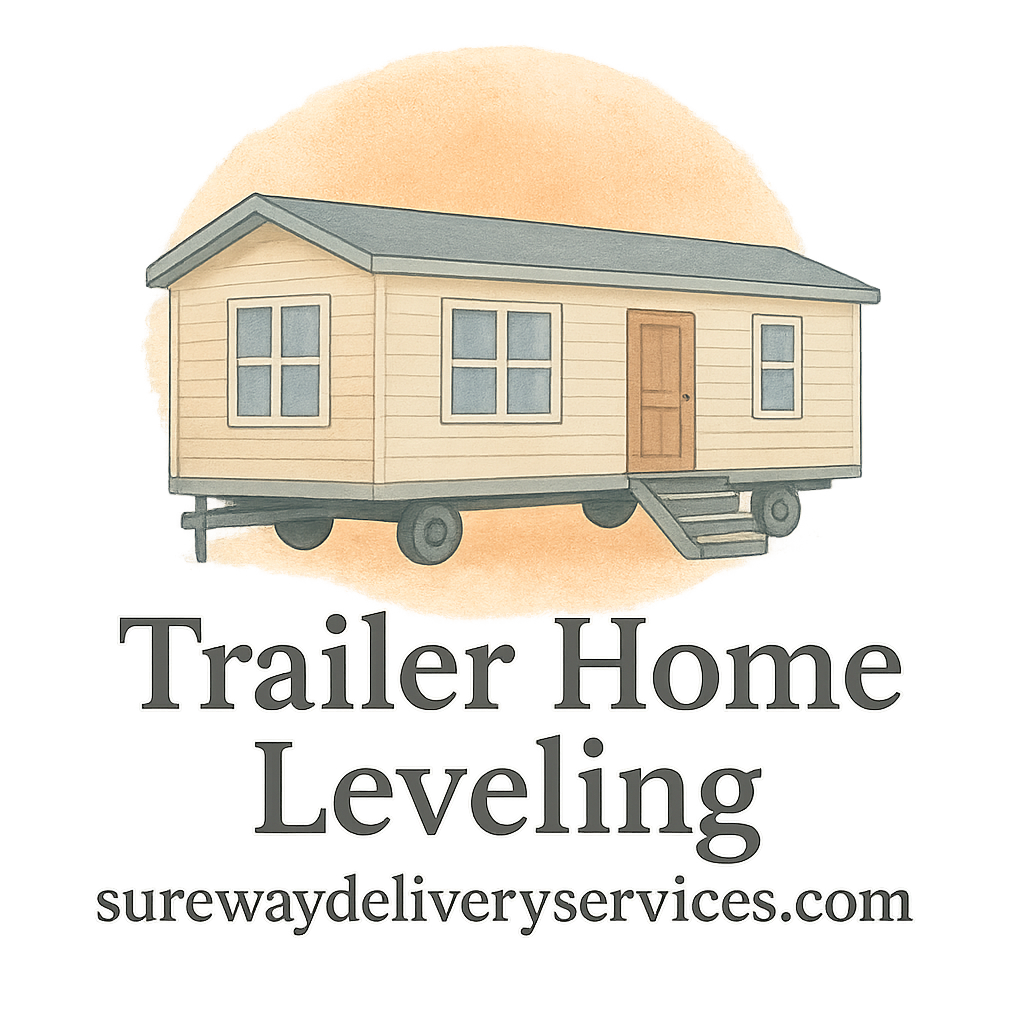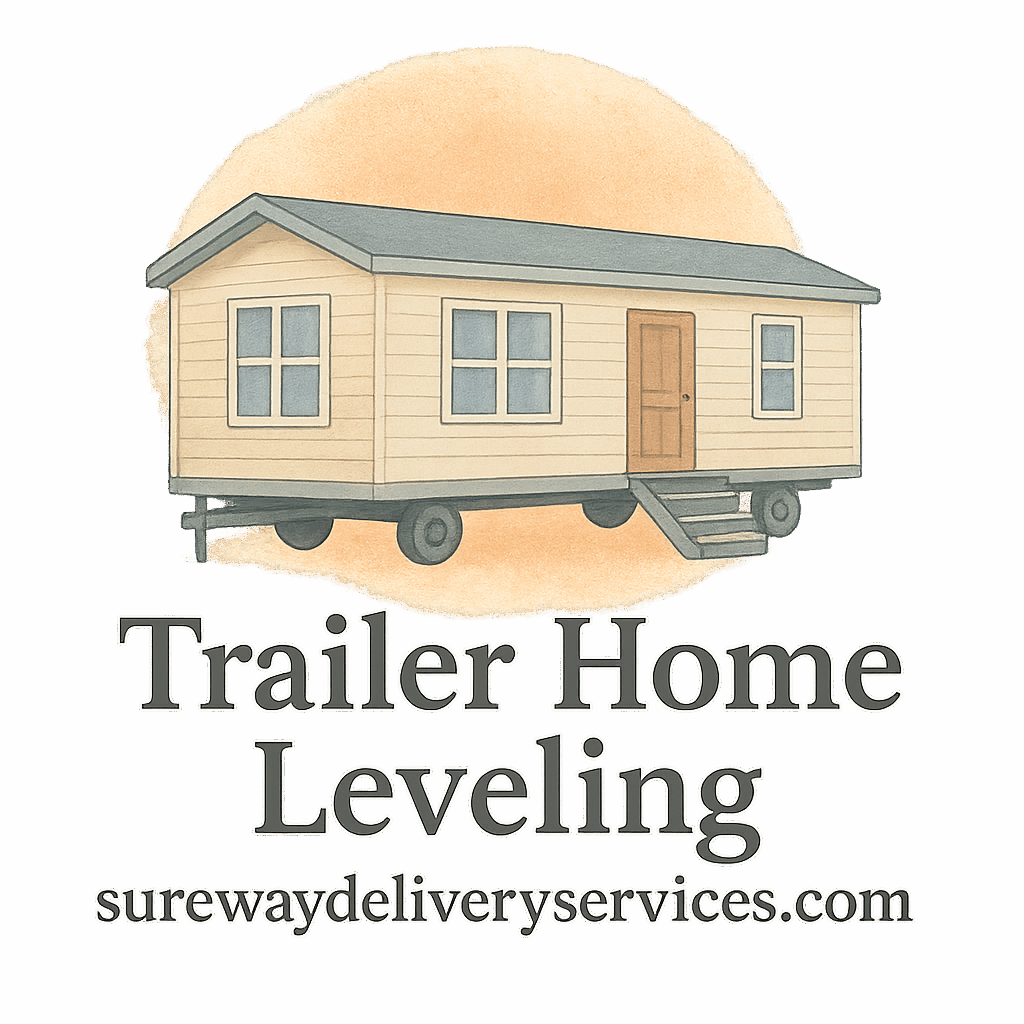Introduction
Leveling a trailer home might sound like a simple weekend project, but trust me—it’s no walk in the park. Between the heavy equipment, shifting weights, and potential hazards, safety should always be your top priority. If you’re planning to take on the challenge, this guide is for you. Let’s walk through five essential safety tips that can save your trailer’s structure and, more importantly, your life.
Why Safety Matters in Trailer Home Leveling
Leveling your trailer isn’t just about aesthetics. It’s about structural stability, preventing water damage, and protecting your investment. Ignoring safety procedures can result in serious injuries or expensive damage.
Common Risks of DIY Trailer Leveling
- Jack failures
- Shifting trailers
- Equipment malfunction
- Trapped limbs or pinched fingers
Benefits of Following Safety Guidelines
- Keeps your home structurally secure
- Prevents costly mistakes
- Reduces the chance of personal injury
Tip 1: Always Inspect the Ground and Environment First
Before you even grab your tools, take a good look at your work area.
Check for Uneven Terrain and Soil Stability
Loose or soft soil can cause your jacks to sink or shift, especially during rainy seasons. Place wooden planks or leveling blocks to create a stable base.
Look for Obstructions and Hazards
Tree roots, rocks, or even underground pipes can pose problems. Clear away debris and know what lies beneath.
Related Resource: Inspection Basics
Tip 2: Use the Right Tools and Equipment
Don’t skimp on the tools. The right gear can mean the difference between a job well done and a complete disaster.
Essential Tools for Trailer Home Leveling
- Hydraulic or scissor jacks
- Leveling blocks
- Torque wrench
- Bubble level
- Safety gloves and goggles
Importance of Proper Jacks and Safety Gear
Your car jack won’t cut it here. Use trailer-specific jacks rated for your home’s weight. Always wear protective gear—you’re dealing with heavy steel, after all.
Explore More Tools: Recommended Tools
Tip 3: Never Work Alone – Have a Spotter
Leveling your trailer isn’t a one-man job.
The Value of a Second Pair of Eyes
A partner can help monitor levels, watch for shifts, and respond quickly in case something goes wrong.
How a Partner Can Prevent Accidents
Communication is key. Use hand signals or radios if noise is an issue. Stay in sync to avoid unnecessary risks.

Find More Tips: Team Up Safely
Tip 4: Follow Manufacturer Guidelines and Safety Procedures
You know that manual gathering dust in your cabinet? Time to open it.
Read the Trailer Manual Thoroughly
Each trailer has specific weight distribution, jack points, and leveling procedures. Skipping this step can ruin your frame.
Stick to Standard Operating Procedures
Whether you found a technique online or from a buddy, cross-reference it with the manual.
Learn More: Basics Introduction
Tip 5: Regularly Maintain and Inspect Your Trailer
A well-maintained trailer is a safe trailer.
Preventing Future Leveling Problems
Routine checks ensure that leveling components like jacks and blocks are in good shape. Rusted parts or warped wood can be a disaster waiting to happen.
Identifying Early Signs of Damage
Look for cracks in the walls, doors that won’t shut properly, or floors that feel uneven. These are red flags.
Helpful Resources:
Conclusion
Leveling a trailer is more than just making sure it feels flat inside. It’s about safety, security, and long-term durability. By inspecting your environment, using the right tools, having a partner, following guidelines, and maintaining your trailer, you’re setting yourself up for success. It might feel like extra work now, but it’s worth every minute when your trailer stands strong and stable for years to come.
Want to go deeper? Explore more on:
FAQs
- Is it safe to level a trailer by myself? It’s possible, but not recommended. Always have a partner for spotting and safety.
- How often should I check if my trailer is level? Ideally, with the seasons or after heavy use or storms. Consider an annual check.
- Can I use a car jack to level my trailer? No. Trailer homes require jacks rated for much heavier loads.
- What’s a quick way to check if my trailer is level? Use a bubble level inside your trailer, on flat surfaces like counters or floors.
- What are the signs my trailer needs re-leveling? Doors not closing, creaking noises, or tilted furniture. Visit our Signs page.
- What should I do if the soil under my trailer shifts? You’ll need to re-level and possibly reinforce the base. Read about soil conditions.
- How much does professional trailer leveling cost? It varies by location and damage extent. Get insights on our Cost Tips page.

Welcome to the trailerhomeleveling.com

